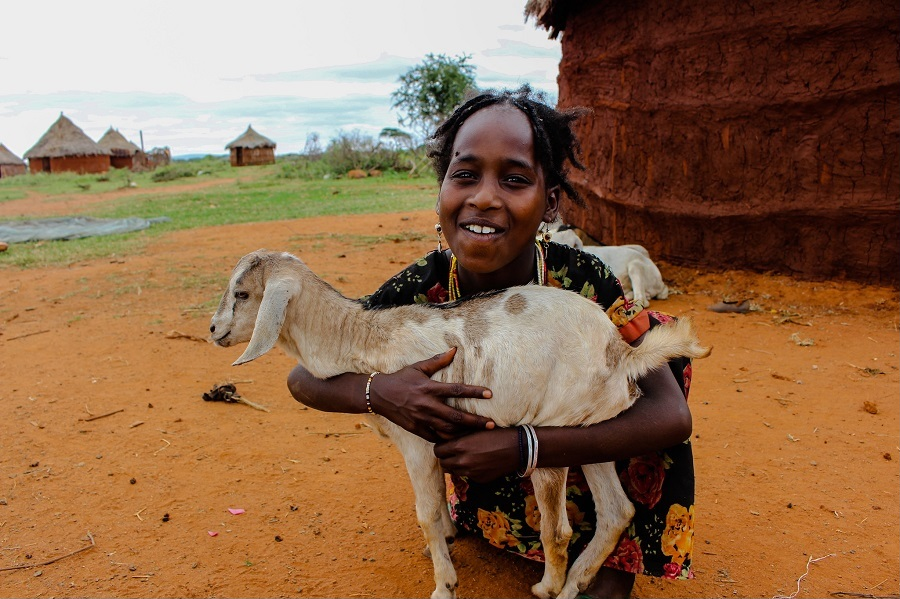
Report: Resilient Generation: supporting young people’s prospects for decent work in the drylands of east and west Africa
Young people make up a large majority of the populations in east and west African countries, but face major challenges in accessing decent employment opportunities due to weak institutions, poor infrastructure and weak human capital.
These interrelated factors contribute to poor service delivery, limit access to markets, decrease productivity and human development. Climate change and other shocks, including conflict, also continue to create new and emerging risks for rural livelihoods, particularly in the arid and semi-arid regions of Africa, where they further limit young people’s ability to secure climate-resilient, decent work.
Despite this, arid and semi-arid areas offer economic opportunities that build on the strengths of agriculture and pastoralism, including livelihood diversification. This includes tourism, processing and service industries, renewable energy production (including solar, geothermal and wind power) and the use of new and green technologies.
To date, few policies and programmes have targeted education, skills development and employment support to young people in drylands. Policy debates and programme design have also largely overlooked gender, age and poverty dynamics, and other intersecting social identities – such as ethnicity, religion, (dis)ability and geography. All of these factors influence young people’s experiences, ideas, and aspirations.
In partnership with the Gender and Adolescence: Global Evidence programme, the Supporting Pastoralism and Agriculture in Recurrent and Protracted Crises (SPARC) programme, has published the Resilient Generation: supporting young people’s prospects for decent work in the drylands of east and west Africa report.
Taking a regional approach, the report focuses on opportunities for young people in Ethiopia, Nigeria, South Sudan, Somalia, Sudan and Mali. It aims to:
- Review the factors that currently shape dryland youths’ livelihood and work prospects and their trajectories as young adults;
- Highlights key knowledge and research gaps, including the need for more longitudinal research in the drylands, and more studies on pandemics and their impact on rural youths’ access to work and vocational training;
- Examine the opportunities and provide recommendations for external actors to work with young people in drylands to broaden their ‘opportunity windows’ for decent work in a way that is fully gender-responsive and socially inclusive of young people in all their diversity.
The report provides a series of recommendations for:
- Strengthening young people’s educational foundations for decent work, in the drylands;
- Vocational training and guidance for young people in the rural drylands;
- Broadening young people’s sense of choice and access to wider economic opportunities in drylands, including through climate-resilient, low carbon vocations; and
- Addressing the enabling environment to support young people to access and secure decent work in dryland regions.
Download the full report or access the accompanying issue brief.
We invite you to engage with our work around supporting pastoralism and resilient livelihoods in Africa’s drylands by following us on Twitter @Cowater_Intl and @SPARC_Ideas.
About SPARC
Supporting Pastoralism and Agriculture in Recurrent and Protracted Crises (SPARC) is a programme that aims to address the challenges of food security and economic opportunity in the drylands of Africa. Supported by UK Aid, and implemented by Cowater International, SPARC is being delivered in partnership with the Overseas Development Institute (ODI), the International Livestock Research Institute (ILRI), and Mercy Corps. SPARC’s objectives are two-fold. First, it aims to provide research and technical assistance to understand the nature of major crises in the food system in countries facing conflict or the risk of political instability. Second, as one of the largest global research programmes on pastoralism and agriculture in fragile and conflict affected states, SPARC focuses on bringing new insights to development practitioners working to address some of the most pressing global humanitarian challenges.
Related Content
Protecting watersheds and combating desertification, the ESEPV-Sahel project in Burkina Faso is committed to supporting local communities
Overview Heavily dependent on rain-fed agriculture and livestock breeding for their livelihoods, people in the Sahel region of Burkina Faso are particularly vulnerable to the impacts of climate change. According […]
Addressing Climate-Induced Drought and Desertification in Ghana: A Community-Centric Approach
With global temperatures hitting record highs and rainfall patterns becoming increasingly erratic, the dire consequences of climate change, such as drought, land degradation, storms and floodings are intensifying. In countries […]







